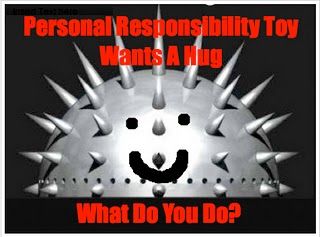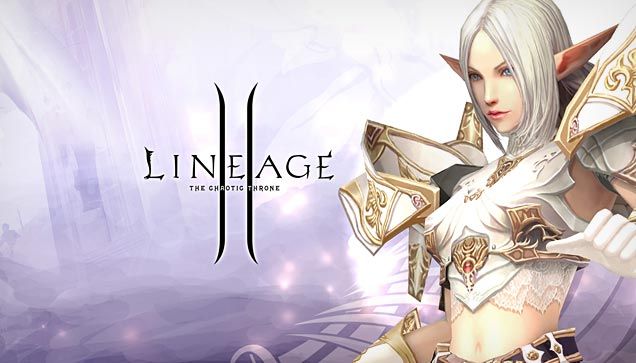Life is full of responsibilities – from making good grades in school, to driving a car, to having bills to pay and a family to support. Making good decisions and learning from our mistakes is seemingly essential in the day to day activities of life. If you don’t make the right decisions, you will likely suffer the consequences – getting in an accident where people are injured or worse, divorce or having your utilities shut off for lack of payment.
Everyone is, for all intents and purposes, held to the same standards of personal responsibility and accountability in real life. But, what about the virtual world – the worlds so many people in today’s culture tend to slink away to in order to avoid the problems and pressures of that real life, even if for only a few fleeting moments? Is that same personal accountability and responsibility the norm in these realms, or the exception to the rule?
MMORPGs, as a whole, tend to be the focus of much public ire from those who aren’t as knowledgeable about gamer culture as they really need to be to start calling out the hobby for whatever reason. Games like EverQuest – more lovingly dubbed "EverCrack" – tend to be met with a negative connotation whenever someone from the “outside” refers to it. In more recent times, World of Warcraft has come under scrutiny, mostly in countries other than the United States, for being overwhelmingly addictive, to the point where people neglect personal health and hygiene to sit in front of a computer screen for way too long, partaking in virtual adventures with friends they have never met face to face.
This topic has come up again, but it isn’t a newer title that is under the microscope, it is the aging Lineage II. Now, before we get into the meat of this issue, let’s look at what the developers of MMORPGs have to do to make a buck, which is their right, just like everyone else. They are a business, whether we’re talking about Blizzard, NCSoft, Warner Bros. (Turbine), Electronic Arts (Bioware) or any other company, they’re in it to make money. To do that with an MMO, which typically hinges on a player paying a certain fee every month, or playing enough where they are constantly using an item shop to make convenience purchases, the developer has to keep the player coming back for more.
I’m pretty sure the developers don’t set out to make their game addicting to the point of neglecting your health to play, but there is a certain amount of addiction involved so that you keep coming back for more. There is a constant barrage of new content coming down the pipe to keep players of all skill ranges and play schedules enthralled in whatever fantasy realm they’re living in during their play time every day.
With all that being said, the question can be asked: Can a video game publisher or developer be successfully sued for creating and releasing a game that makes players want to play it?
A Lineage II player by the name of Craig Smallwood (don’t go there) apparently thinks so. He’s suing NCSoft for making that particular MMO too addicting. How addicting, you ask? He’s logged over 20,000 hours in Lineage II in the last five years. There are approximately 1825 days in five years and, of that number, 833.3 days were spent playing Lineage II for this man. Put another way, that’s roughly 11 hours per day, every day, for five years. Can you imagine? Personally, I think this guy has self-control issues, but that’s just me.
 So, Mr. Smallwood is suing NCSoft for negligence in not mentioning that their game was so addicting. Interestingly enough, a federal judge has allowed the suit to proceed, stating that “the court finds that plaintiff has stated a claim for both negligence and gross negligence.” NCSoft has appealed that particular ruling, and went to far as to ask the judge to dismiss the case entirely. Apparently Mr. Smallwood also had his Lineage II accounts banned for RMT (Real Money Trade) activity, which is largely a no-no in MMOs. Notice the plural – accounts. He had more than one account, which probably added to his so-called addiction.
So, Mr. Smallwood is suing NCSoft for negligence in not mentioning that their game was so addicting. Interestingly enough, a federal judge has allowed the suit to proceed, stating that “the court finds that plaintiff has stated a claim for both negligence and gross negligence.” NCSoft has appealed that particular ruling, and went to far as to ask the judge to dismiss the case entirely. Apparently Mr. Smallwood also had his Lineage II accounts banned for RMT (Real Money Trade) activity, which is largely a no-no in MMOs. Notice the plural – accounts. He had more than one account, which probably added to his so-called addiction.
So, a couple questions spring to mind: 1) Who’s fault is an addiction? 2) Can NCSoft be held accountable for someone else’s lack of personal responsibility? Yes, there are substances – including prescription drugs, illegal narcotics and even alcohol – that are, by their very nature, addicting. However, each and every human has free will to do as they please. Therefore, I’m under the impression that addiction is the fault of the individual, and not the substance (or, in this case, video game) itself. Like I mentioned earlier, just like various drugs, MMOs are, by nature, addictive in a manner of speaking. But they don’t have to be for each individual if they have a measure of self-control and personal responsibility.
It is so easy to play only a couple hours of an MMO and call it a day. Easy to the point that I almost can’t wrap my head around someone suing a publisher because they couldn’t control their use of the publisher’s game. That is pretty ridiculous from where I’m standing. However, I do understand that certain individuals have a mindset that is prone to addiction and sometimes it is possible that they can’t help it. Even then, I don’t believe it is the fault of the developer that a small minority of people can’t control their reliance upon a certain game, MMORPG or not.
Also stemming from this discussion is the role of parents in relation to the video games their children play. Is it the game – and, by extension, the publisher or developer – that is causing kids (or anyone) to fail school, become violent or in any other way become a burden to society? No, it isn’t. It comes down to personal responsibility of the parents to keep their kids in line, regulate the games they play and teach the kids what is more important in life. That is not the role of video games or the people who make them.
This all comes down to the unfortunate fact that people in general tend to think, when something bad happens, it is anyone’s fault but their own. In reality, that couldn’t be farther from the truth. While there may be many factors involved, ultimately it comes down to personal responsibility and accountability. In the case of Mr. Smallwood, I really can’t see this suit going very far. Is it a bad idea for publishers to put warning labels on game boxes or on a game’s title screen in some manner? Not necessarily. Should it be required because people can’t control themselves? No, it shouldn’t.
What do you all think? Should warning labels be required? Who’s responsibility is it when someone falls into so-called video game addiction? Who’s responsibility is it to regulate game play – the individual, the government or the publisher? Sound off in the comments!


